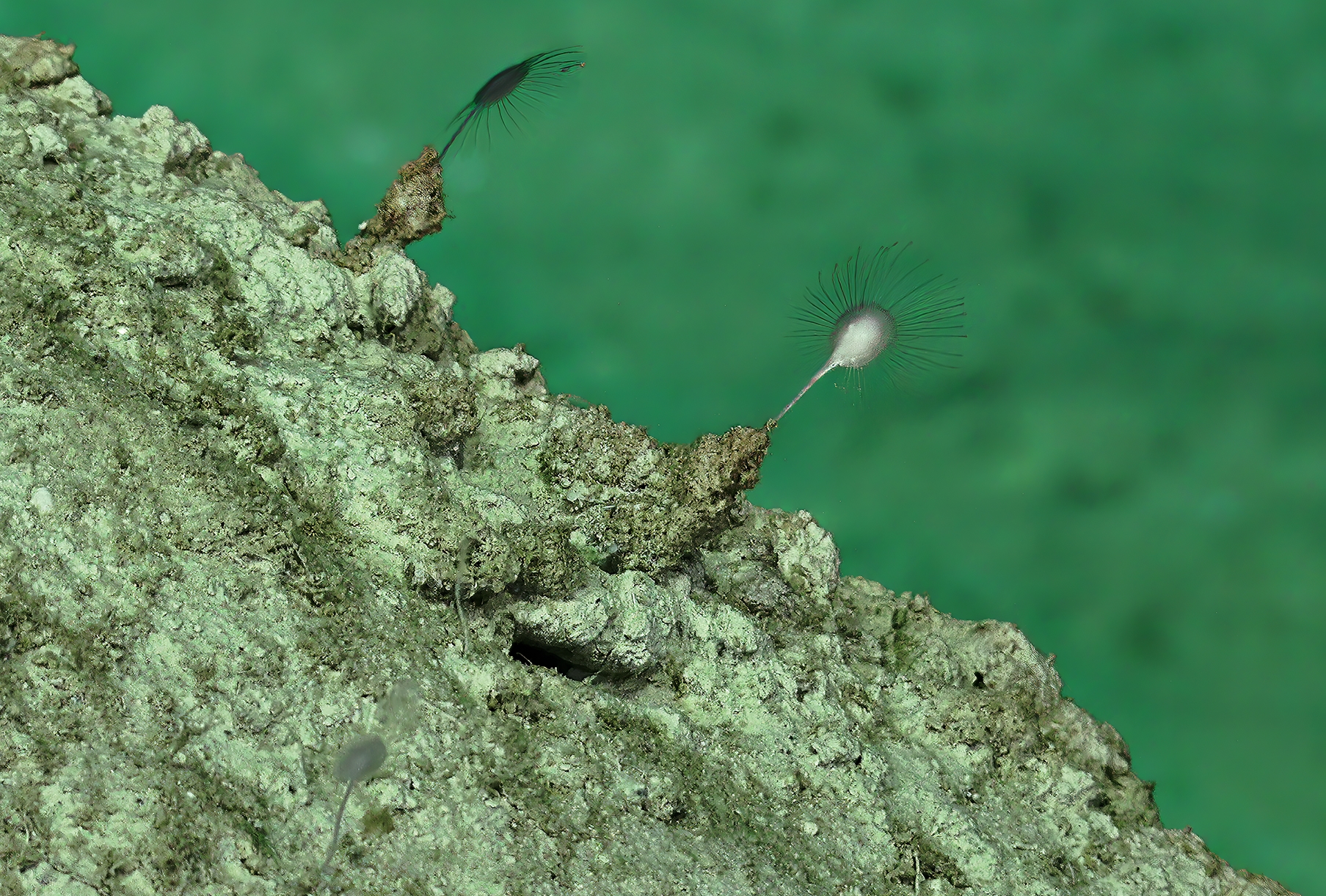News release
From:
16 June 2023
Deep sea dive from a desk uncovers three new species
Queensland Museum Network Sessile Marine Invertebrate Researcher, Dr Merrick Ekins has described three new species of carnivorous sponges collected two kilometres below the surface on the Great Barrier Reef.
“It was surreal to be sitting at my desk at the museum during 2020 and directing remote operated vehicle pilots to collect specimens, which appeared to be new species,” Dr Ekins said.
The sponges were collected as part of the Schmidt Ocean Institute’s research vessel Falkor in September 2020, which sent a ROV 1,820 metres below the surface to explore the deep reefs of the Great Barrier Reef.
“The Schmidt Ocean Institute voyage ‘Seamounts, Canyons & Reefs of the Coral Sea
Cruise’ was in 2020 and there was a lot of uncertainty with regards to travelling during the COVID epandemic,” Dr Ekins said.
“It was thrilling to still be part of this expedition remotely.”
Dr Ekins scientifically described one of the species Abyssocladia falkor in honour of the research vessel and a second Abyssocladia jeanvaceleti in honour of the scientist who first described carnivorous sponges.
While for the third he had a bit of fun and named it Axoniderma wanda in honour of the alien wanderer/wanda that parasitises the host Melanie Stryder in the movie and novel, The Host by Stephenie Meyer.
Queensland Museum Network CEO Dr Jim Thompson said more is known about the surface of Mars than the deep oceans.
“There is still much to learn about our deep oceans and being part of global research projects only enhances our knowledge,” Dr Thompson said.
“The ability for our scientists to be involved in research projects such as this is testament to the depth and breadth of expertise of the Queensland Museum Network team.
“Our collaborative approach to research for the benefit of the scientific community.”
The 2020 dives were livestreamed and are available to view here: https://www.youtube.com/user/SchmidtOceanVideos/videos
The new paper was published recently in Zootaxa - https://doi.org/10.11646/zootaxa.5293.3.2
ENDS
Meet the carnivorous sponges
Abyssocladia falkor sp. nov. is named in honour of the research vessel that enabled the discovery of these species…this is the Schmidt Ocean Institutes flag ship.
Abyssocladia jeanvaceleti sp. nov. named in honour of the scientist who first discovered carnivorous sponges and has described many species from the Pacific and elsewhere
Axoniderma wanda sp. nov. This species is named for its resemblance to the alien wanderer/wanda that parasitises the host Melanie Stryder, played by actress Saoirse Ronan from the movie and novel by the same name i.e. “the Host”, authored by Stephenie Meyer.
Multimedia





 Australia; QLD
Australia; QLD


